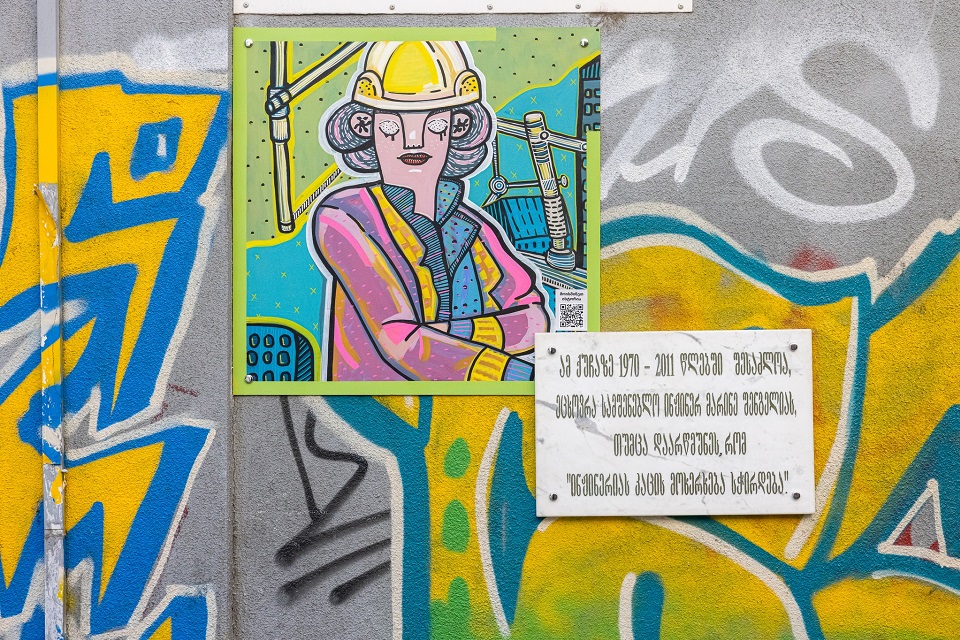Women Who Don’t Exist: A campaign against stereotypes
Date:

In Georgia, women’s professional choices are often limited by gender stereotypes, and society still divides industries into ‘male’ jobs and ‘female’ jobs. Such misconceptions prevent most women from realizing their potential.
It was precisely these unfulfilled professional goals emerging on the streets of Tbilisi in early April that made the public think about this issue - and reminded everyone that, for instance, an outstanding female pilot, physicist, programmer or football player might have lived in this or that house. All of these women, however, had been convinced that their dream profession was ‘not a woman’s job’ or that it ‘required a man’s brain’.
The informational plaques were part of the Women Who Don’t Exist awareness campaign, implemented on the initiative of the UN Women Country Office in Georgia. The idea and execution belonged to the creative agency Watergunz, and the main partner of the project was beauty company The Body Shop. The supporters of the campaign were Business and Technology University and car dealership Toyota Center Tegeta. It should be noted that all of the private sector representatives involved in the initiative are signatories to the United Nations Women’s Empowerment Principles, and their association with the campaign was part of their support of these principles.
Along with the signs, the campaign also included digital content. From 4 April to 10 May, videos, photos and illustrations were spread through popular social networks and clearly showed that girls have the right to choose their dream jobs and follow professional paths without stereotypes. Engagement in the campaign brought together 842,000 online users, and its reach was approximately 754,000.
The Women Who Don’t Exist campaign was built on real stories, which were posted on a special website, www.unstereotype.ge. “I wanted to be a sailor. I always dreamed of going to sea, but this dream was lost to me forever: ‘Working on a ship is not a woman’s business.’” “‘Winemaking is not a woman’s job’, they’d reiterate now and again. And in the end, I believed it too.” “They gradually took me away from my dream and planned a completely different future for me.” These are actual fragments from real stories.
Elene Gugushvili, Head of Marketing and Activism at The Body Shop, remarks: “Since the brand was founded, one of the main values of The Body Shop has been the empowerment and support of women. We constantly fight against the injustice, stereotypes and views that prevent [women] from making decisions independently and achieving their desired goals. In this regard, we are actively working in Georgia as well. We are also a signatory to the Women’s Empowerment Principles of the United Nations, and this campaign, in which we enthusiastically participated from the beginning, is likewise a good opportunity to realize our values. If, with its help, at least one girl achieves her professional goal, we will feel that we have fulfilled our mission.”
It should be noted that the fight against stereotypes will continue even after the end of the campaign. The informational signs, currently scattered on the walls throughout Tbilisi as a symbol of shattered professional dreams, will be collected and redisplayed together on one massive wall to remind everyone that professions are not divided by gender. Tbilisi City Council, which was also involved in the implementation of the project, responded to the campaign. On its initiative, several streets in the capital have been named after Georgian women who played an important role in the development of various fields in the country.
The campaign is part of the Women’s Economic Empowerment component of the project “Good Governance for Gender Equality in Georgia”, which is implemented by UN Women with the support of the Norwegian Government.